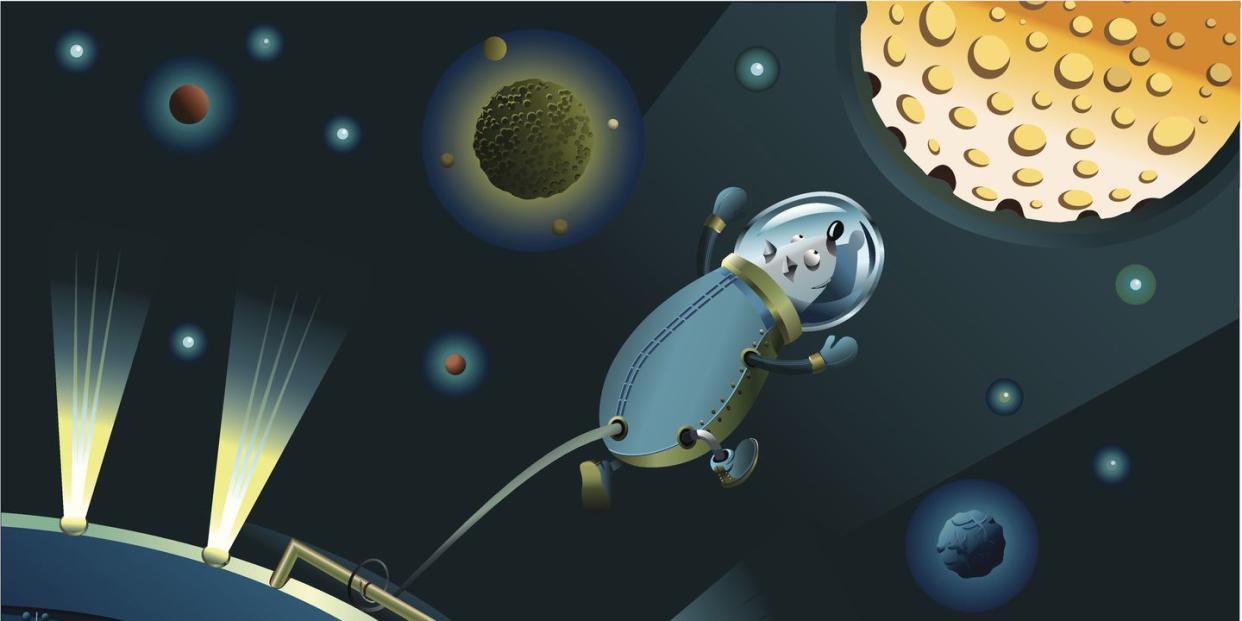Scientists Are Sending Astronaut Mice to Space to Study Biology

On the next resupply mission to the International Space Station, the Space X Dragon will be bringing coffee, a robot, and a set of rodent passengers to help scientists understand biology in space. The laboratory mice will help researchers study how zero-gravity affects biological processes like circadian rhythms and microbiomes. “Because a trip to Mars and back is expected to take several years, we need to determine how the gut’s microbiota might be altered in zero gravity over long timescales,” said Fred Turek, director of Northwestern’s Center for Sleep and Circadian Biology
The space mice team consists of 10 identical sibling from two different mice families. Half of them will spend 90 days in orbit, while the other half will be living in a NASA simulator that “replaces the exact minute-by-minute conditions - but with gravity - inside the Space Station.” Researchers will investigate what happens to the microbiome - trillions of bacteria and other microorganisms that live in human guts - in space, and how circadian rhythms, which regulate our sleep and activity patterns, might play a role.
“It’s important to understand how space travel may impact the circadian system, since it coordinates so many biological processes” explains Martha Vitaterna, co-investigator of the study. “The exertion of liftoff, absence of gravity, and confined living arrangement all add to the stress of life in space, and the key to adapting may be in the body’s ability to maintain harmony across systems.”
The mice study is an analogue to the human twin “Year in Space” project carried out in 2015-2016, in which scientists compared data from astronaut Scott Kelly’s year in space with his Earth-based identical twin brother, Mark. The mice research, combined with the results of the Twins Study, will help scientists understand what zero-gravity will do to our bodies, and maybe even help improve human health on Earth.
(via Northwestern University)
You Might Also Like

